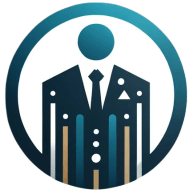10 Recommendations to Foster Continuous Learning Beyond Coaching Sessions
Navigating the journey of continuous self-improvement can be a challenging endeavor. This article distills essential strategies from industry experts to seamlessly integrate continuous learning into daily life. Discover practical recommendations to elevate personal growth and professional development beyond the confines of traditional coaching sessions.
- Document Key Decisions and Outcomes
- Curate Content Based on Interests
- Establish a Weekly Growth Hour
- Recognize Awareness in Everyday Moments
- Seek Real-Time Feedback Weekly
- Focus on Learning, Teaching, and Modeling
- Amplify Industry Thought Leaders
- Integrate Microlearning into Daily Routines
- Incorporate Learning into Workflow
- Dedicate Daily Time for Personal Growth
Document Key Decisions and Outcomes
In all my years of coaching executive leaders, I've found that the most impactful learning happens in the spaces between our sessions - where theory meets reality. I often recommend what I call 'micro-reflection moments': brief, daily practices where leaders document one key decision, its outcome, and what they learned. This simple practice transforms everyday experiences into powerful learning opportunities and helps establish a continuous growth mindset. The most successful leaders I've coached aren't those who rely solely on our sessions, but those who develop a keen awareness of learning opportunities in their daily interactions and challenges. My favorite recommendation is to treat their leadership journey like a living case study - constantly observing, analyzing, and adapting their approach based on real-time feedback and results.

Curate Content Based on Interests
In our book, Becoming Coachable, my co-authors and I posit that the leaders who get the most from coaching are those who are the most coachable. These leaders are characterized by their growth mindset, intellectual curiosity, and a healthy balance of both confidence and humility. These leaders often embrace continuous learning and development naturally but may not know where to turn. A good coach will understand a leader's interests and motivations and serve as a guide and curator along their development journey.
I often say that the best kind of learning is one that is in the flow of what an executive is already doing. For executives who are big readers, I will suggest specific books that are relevant for their situation to add to their existing reading list. For those who prefer audio, I might suggest podcasts or audiobooks. This content becomes a shared knowledge base and common language, which we can then discuss and reinforce in our coaching sessions.

Establish a Weekly Growth Hour
I encourage executives to embrace continuous learning by emphasizing its direct connection to measurable outcomes like increased profitability, innovation, and leadership effectiveness. One recommendation I often make is to establish a "growth hour" each week. This is a dedicated, non-negotiable block of time for activities such as reading industry reports, attending webinars, or analyzing case studies. The key is to align this with their business goals, ensuring that the learning has immediate relevance and application. For example, if their goal is to expand into new markets, their growth hour might include studying competitors or trends in that region. By making learning a structured habit rather than an afterthought, it becomes part of their leadership DNA.
An example of this in action involved a CEO in the UAE who was leading a struggling retail chain. Using my background in turning around underperforming businesses and my MBA in finance, I worked with them to integrate a weekly growth hour focused on customer behavior analytics. Over three months, this consistent practice led to a 20% increase in customer retention because they implemented targeted loyalty programs derived from their findings. This outcome wasn't just luck. It came from combining their willingness to learn with actionable, strategic insights. My years of working internationally have shown me that the most successful executives are those who view learning as a continuous investment, not a sporadic task.
Recognize Awareness in Everyday Moments
My core recommendation isn't another productivity hack or morning routine—it's understanding meditation in a radically different way. Most executives I work with think meditation means forcing themselves to sit still and battle their thoughts. But true meditation is about discovering the awareness that's already here, already free. Instead of adding another task to their packed schedule, I help leaders recognize they can contact presence anywhere—during board meetings, between Zoom calls, or walking to get coffee. It's as simple as unhooking awareness from thought and dropping into direct experience. You can taste this freedom as easily as shifting attention from mental chatter to the sensations in your hands. This approach transforms how leaders think about development. Rather than treating meditation as another self-improvement project, they discover it's about accessing what's already whole and complete. A CEO might notice the spaciousness of awareness while preparing for a difficult conversation. A founder might recognize they can step out of rumination about a decision and into clear seeing at any moment. The beauty is its immediacy and simplicity. You don't need a meditation cushion or a quiet room—just the recognition that awareness is always available. When executives grasp this, their whole relationship to stress and decision-making shifts. They learn to rest in natural clarity rather than constantly trying to fix or improve their minds. This isn't just theory—it's practical liberation. Leaders find they can navigate intense situations with more presence, make clearer decisions, and maintain perspective when things get chaotic. Development becomes less about adding more knowledge and more about accessing the wisdom that's already here.
Seek Real-Time Feedback Weekly
Continuous learning for executives isn't about stacking up courses or collecting certificates, it's about staying sharp, relevant, and ready for whatever comes next! I encourage executives to embrace development by seeking out executive coaching sessions. The goal of a coach is to stay in a space of curiosity, where every conversation, challenge, and setback becomes an opportunity to grow.
One strategy I consistently recommend is building a habit of seeking real-time feedback. Too often, leaders wait for annual reviews or formal feedback sessions, but I push them to ask one simple, powerful question weekly: "What's one thing I could have done better this week?" This feedback not only uncovers blind spots but also builds trust and credibility with their team. It shows that they're not afraid to grow in front of others. It's humbling, but it's also a signal to their team that growth is expected from everyone, including leaders.
I also encourage executives to include learning into their daily routines, not treat it as a someday task. It's easy to say, "I don't have time," but growth doesn't require hours of study. It can be as simple as listening to a 15-minute industry podcast on the drive to work or skimming a leadership blog while waiting for a flight. I tell them to look for stackable learning moments, looking for times where development can fit into the day instead of being a separate, heavy should-do task.
Self-reflection is another game-changer. Executives are often so busy executing that they forget to pause and reflect. I encourage them to set aside 15 minutes at the end of each week to answer a few key questions: "What did I handle well?" "Where did I get stuck?" and "What would I do differently next time?" Self-reflection builds awareness, and awareness drives better decisions. It's not about overanalyzing every move but recognizing patterns that could make them a stronger leader.
Lastly, I want to stress the power of having an accountability partner. Executives are used to holding others accountable, but who holds them accountable? Whether it's a mentor, a coach, or a trusted peer, having someone to check in with regularly ensures they follow through on their growth goals. It also reinforces the belief that leadership isn't about having all the answers, it's about staying committed to the process of learning. When leaders prioritize their own development, they lead by example, inspiring their teams to do the same!
Focus on Learning, Teaching, and Modeling
I ask a very simple question: Are you done?
In twenty years as a coach, I've never had anyone say yes. Even when someone was actively planning their retirement, they saw themselves at the beginning of something rather than the end.
And so, it stands to reason that if they are not done, not dead, they must still be moving forward. That means living, learning, and writing the next chapter.
From there, the conversation gets much easier. It revolves around three core questions for any leader. What are you learning? What are you teaching? And what behaviors are you modeling for those who look to you for inspiration? Once you know that, the how is easy.
Amplify Industry Thought Leaders
When Corey and I first took over Careers in Government, the website was stuck in the past. We knew we had to completely rethink how we approached recruitment and career development for government agencies and job seekers. A big part of that was fostering a culture of continuous learning - not just for our clients, but for our own team as well.
The key is making professional development a seamless part of the workday, not just something that happens during occasional coaching sessions. For our agency partners, that means equipping their HR teams with the latest digital tools and marketing strategies. But it also means creating opportunities for them to learn from each other.
That's why we've built a community of over 300 government thought leaders who contribute to our blog and social channels. These are current and former public sector employees, HR experts, and career coaches who have real-world experience navigating the unique challenges of recruitment and retention. By giving them a platform to share their insights, we're not only providing value to our 21 million job seekers, but also facilitating ongoing learning and networking for the agencies.
And this approach has helped us build incredibly long-lasting client relationships - 5 to 10 years on average. When you create an environment where people feel empowered to grow and innovate, they're going to stick around. They see us as strategic partners, not just a transactional service.
My recommendation to executives? Identify the thought leaders in your industry and find ways to amplify their voices, whether through a blog, podcast, or online community. It's an investment, but one that pays dividends in terms of employee engagement, talent retention, and organizational agility. When you empower people to be lifelong learners, you unlock a level of innovation that's truly game-changing.
In an industry as dynamic as government recruitment, that ability to stay ahead of the curve is critical. Just ask any HR executive who's tried to keep up with the "Silver Tsunami" of retiring baby boomers (laughs)! Anyway, let me know if you have any other questions - I'm always happy to chat.

Integrate Microlearning into Daily Routines
To get executives on board with continuous learning, I often recommend integrating learning into their daily routines through microlearning platforms. These platforms offer bite-sized, on-demand content that fits seamlessly into a busy schedule, making learning less of a chore and more of a habit. It's like sneaking veggies into your favorite dish—you're getting the benefits without even realizing it.
Another powerful strategy is to create a culture of learning by leading by example. When executives actively participate in learning initiatives, it sets a precedent for the entire organization. Encourage them to share insights from their learning experiences in team meetings or company newsletters. This not only reinforces their commitment to personal growth but also inspires others to follow suit, creating a ripple effect of continuous development throughout the company.

Incorporate Learning into Workflow
I stress the value of incorporating learning into everyday routines and decision-making processes in order to inspire executives to embrace ongoing learning outside of coaching sessions. Developing the habit of microlearning—consuming brief educational materials like articles, podcasts, or industry updates during breaks or commutes—is one suggestion I frequently give. In order to share ideas with other leaders, I also urge them to take part in peer learning through masterminds or networking groups. Executives are more likely to recognize the importance of learning and remain dedicated to continuous personal and professional development if it is integrated into their workflow and made applicable and relevant.

Dedicate Daily Time for Personal Growth
It's awesome when executives are committed to continuous learning and development, even after our coaching sessions wrap up. To keep that fire lit, I encourage them to think of learning as an ongoing journey, not just a destination. It's about weaving development into their daily routines, not treating it as a separate task.
One recommendation I often make? Carve out dedicated time for themselves. I know their schedules are jam-packed, but even just 15-30 minutes a day can make a huge difference. This 'me time' could be spent reading industry articles, listening to podcasts, or even reflecting on their own experiences. It's about staying curious, feeding their minds, and making space for continuous growth.






